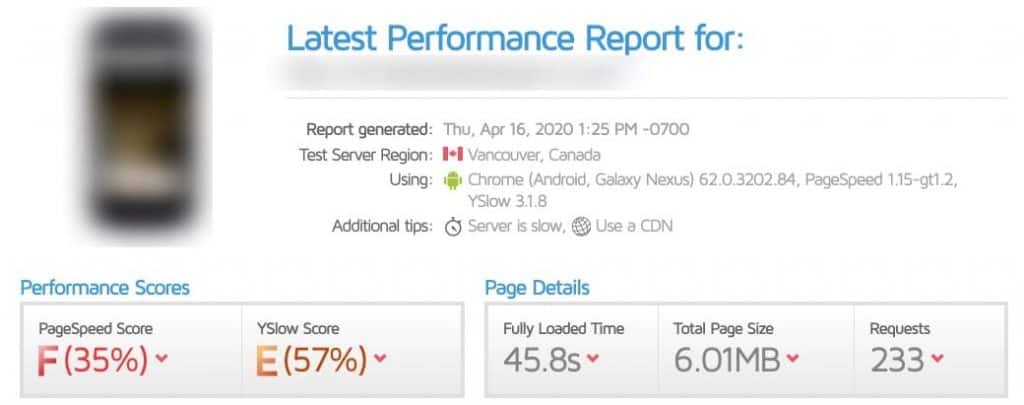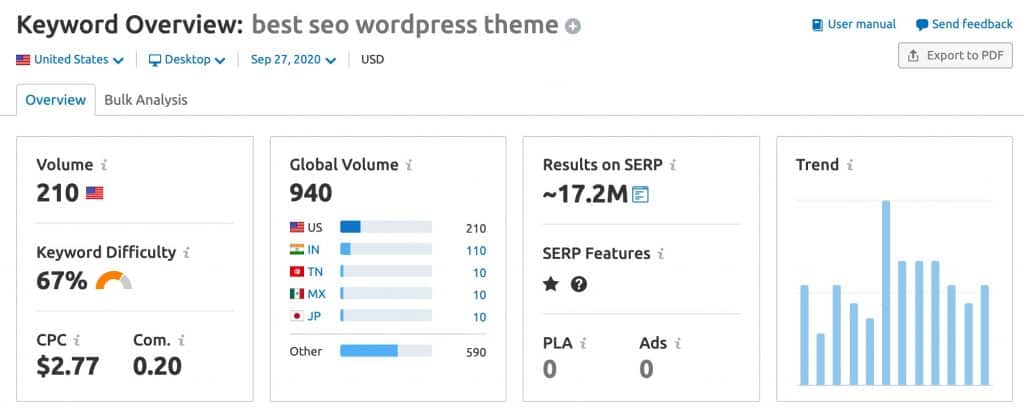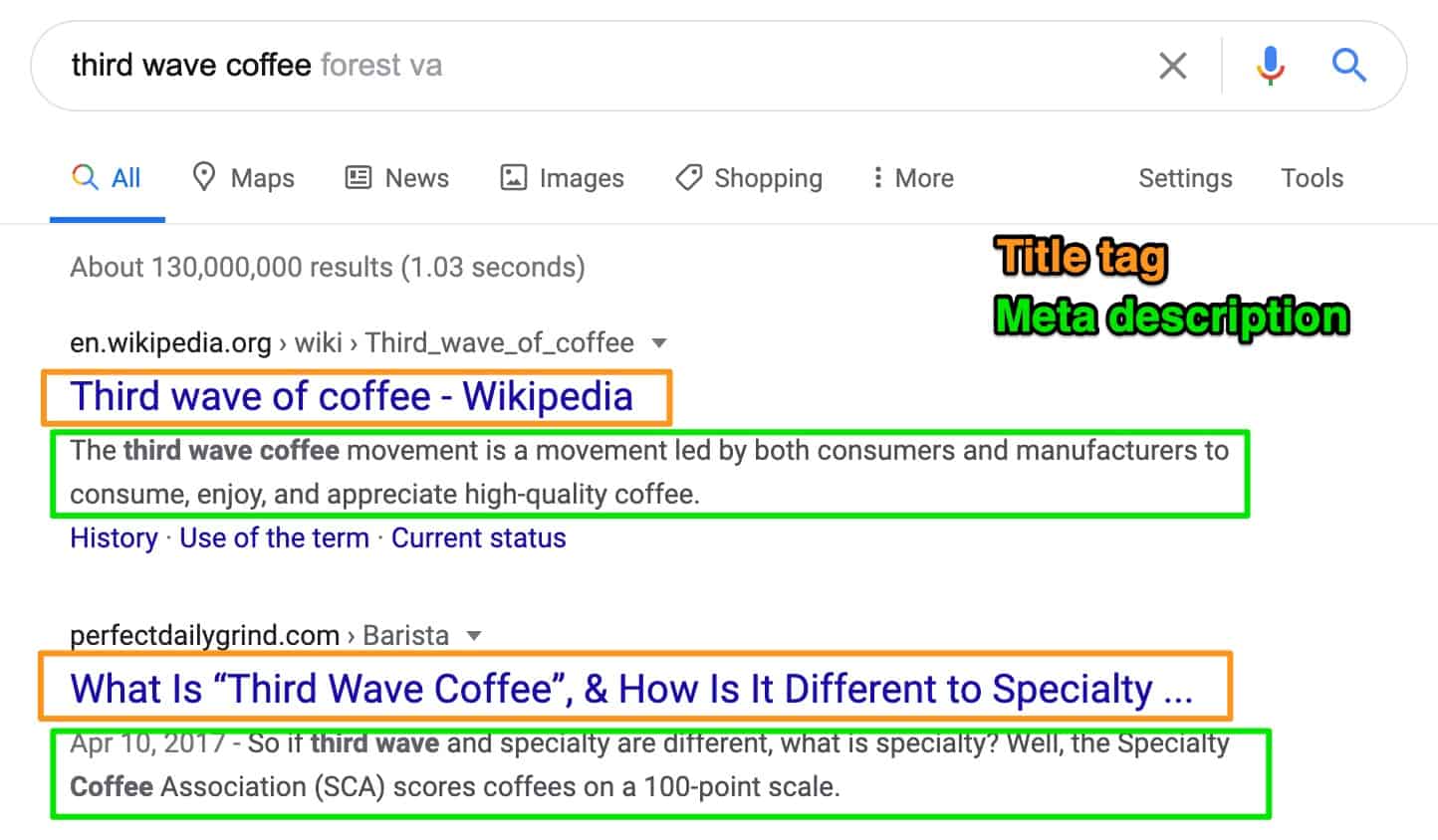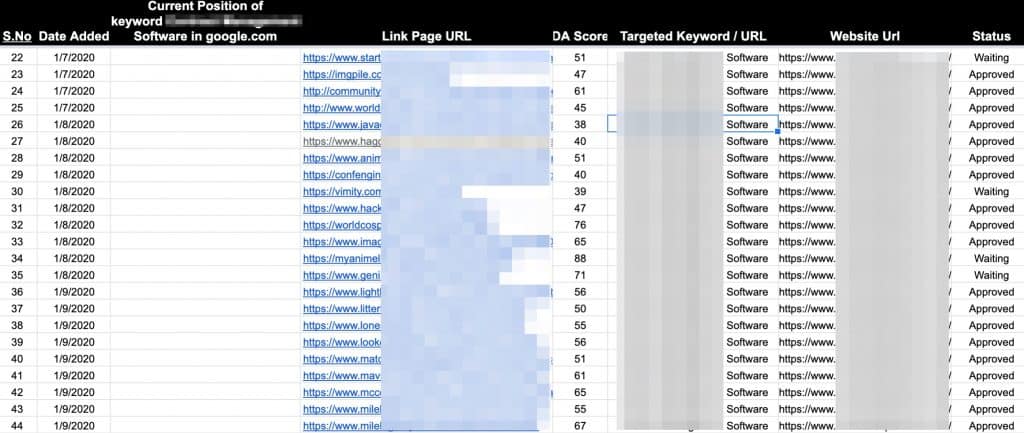SEO is still a relatively unknown term to most people. In my circles, unless they are in the tech world, I always use an analogy to explain what I do.
This creates a perceived notion that search engine optimization is some sort of mystical thing marketers do do get more traffic and rank high on Google. But really, it comes down to one thing: excellent experience for users/readers.
There are over 200+ ranking factors on Google and I’m not going to dive into each one of those. Rather, I only focus on the ones that really matters. And in this post, I’ll cover four buckets of work that every SEO maintenance plans should include. This way, you won’t get fooled into whatever jargon the freelancer or agency you’re talking to and pay for something you don’t understand.
What is SEO Maintenance?
SEO is the process of getting your website to rank higher on search engines. You optimize your website to “follow the rules” of search engines so it can read your site properly, and consequently, show it to people when they perform searches.
SEO maintenance is the ongoing work you do to continuously improve your site and/or maintain the results you already achieved with your past SEO improvements.
That’s why a lot of consultants and agencies offer monthly services to help you bring in better results.
Do You Need Monthly or Ongoing SEO Maintenance?
Yes. Unless you want to waste your resources, you will benefit more with SEO maintenance.
The content you see when you search on Google is powered by algorithms. These are complex formulas or instructions that use over 200 factors to decide which single page on the internet goes to the #1 spot.
And it’s known that these search algorithms change a lot in a single day.
- 2018 – 3,234 “improvements” —> an average of 9 changes per day
- 2017 – 2,453 “changes” —> average of 6 per day
- 2016 – 1,653 “improvements”
Aside from these changes from the search engines itself, the market is also not standing still. That means your competitors, new and existing, are working their way to catch up with you. So, whether you have the #1 spot today doesn’t mean you’ll stay there in 6 months especially if you don’t do anything.
What Does This Mean for You?
SEO maintenance is a must if you want to continuously improve and maintain your rankings over time.
That means whenever you are offered some monthly SEO packages, the work has to revolve around these things.
That said, not all SEO services are created equal.
For example, I had one client who hired an agency to do some SEO work. When I learned about it, I asked what exactly are they doing. Based on the answers, they’re not doing anything at all. They have a monthly SEO service with no output nor any defined activities. And my client is paying for them! We’ll get to this later.
One thing to note though is not all agencies or freelancers will do these things, but it’s worth knowing what you need to do in order to increase your rankings on search engines. Some specialize in one service, while others do everything.
4 Buckets SEO Work Falls Into
SEO services really falls into four general buckets. Everything, whether you do it yourself or outsource it to someone else, will fall under these. If they don’t, then don’t do it.
- Technical audit and fixing everything that is on your website
- Keyword research or planning
- Creating or updating content
- Building links to your site
1. Technical or Website Audit
This first bucket of work is all about fixing the errors and issues on your website that is preventing you from ranking on Google. For example, site speed is a ranking factor that most website owners neglect.
Did you know that the average speed of websites ranking on page one of Google is 1.65 seconds?
If you haven’t looked into this in a while, go to GTmetrix, add your domain, and look at the page load time. If it’s over 3 seconds, then you have a lot of things to fix.
There are a whole bunch of other stuff to consider here from user experience (UX), internal linking, mobile-responsiveness, and a whole lot more.
What to Look Out For
As mentioned above, there’s a LOT of aspects of on-page SEO that you need to consider. But if you are using WordPress or any other content management systems (CMS) like Shopify or SquareSpace, you really don’t have to worry too much about some of these issues because it takes care of it for you automatically.
So when it comes to on-page SEO, I generally focus on three things:
- Site speed
- Internal links
- Broken pages/links
These are the most common issues I see on website audits in my experience.
For example, I had a client who’s struggling to get conversions on their PPC landing pages. When I looked at it, ran it through GTmetrix, the page loads in 45 seconds!

As a customer, will you do business with them? When you see an ad, click on it, and takes forever to load, will you wait around? Or will you go back and find another site?
Imagine that happening to Amazon. It takes you 5 seconds just to open a product page. If that was the case, Amazon won’t grow into the eCommerce giant they are today.
Related reading: Core Web Vitals: Everything You Need to Know About the New Page Experience Signal
2. Keyword Research
The second bucket of SEO work you need to have is keyword research. This is the backbone of SEO and is pretty much included in most SEO services.
Essentially it’s finding which keywords or phrases you want to rank for. Then, you just balance between which ones bring more traffic vs which brings conversion. All things being equal, you’d want to prioritize commercial intent ones because they are the ones that bring in money or leads.
There are two main metrics often used during this process:
- Monthly search volume
- Keyword difficulty
There are other metrics associated here, but these two are generally what you’d look at 80% of the time.
What to Look Out For
There are various keyword research strategies. The most common is the high volume, low difficulty keywords. But just know there are different approaches to this and you shouldn’t always target high volume, low difficulty keywords.
For example, most buying intent keywords like “best seo wordpress theme” have low volume, low difficulty. But since they have high commercial intent, meaning people searching for them are most likely to convert, ranking for them makes so much more sense.

So, when an agency or consultant do their keyword research, make sure you specifically ask them to tag which ones are commercial and prioritize them.
3. Create or Update Content
This is where most SEO maintenance services fall short. After doing a good job at the previous bucket (keyword research), they hand over the list of keywords to you. Or in most cases, they add it to the website themselves.
But simply adding keywords to your website won’t help it rank at all.
Ever tried to analyze the results you click on when you Google something? Most likely, you asked a question or entered a phrase, then you read the article to learn about the topic.
That is what this bucket of SEO work is all about— creating content or updating older ones so you can rank for those keywords.
Using the same example I shared above, if you type in “best seo wordpress theme” and look at the top 10 results, do you think that they just added the keyword to their page and it started ranking?
What to Look Out For
Most SEO agencies or freelancers will focus on adding keywords to your title tags and meta descriptions. Some will add it to your content headings. Only a few will create or update the content to make it flow naturally.

I think it’s obvious here what you should do, right? Don’t hire the first two examples. They don’t work. They stopped working 10 years ago.
The next time you someone tells you we’ll do SEO for your website and tell you they’ll add keywords to your pages, ask specifically what they mean.
- “Will you create new pages or blog posts?” Let’s do it
- “Where exactly will you add the keywords?”
- “Will you only add them to the title tags and meta descriptions?” If so, then no thanks.
- “Will you add or replace the existing headings on my page?” If that’s the only thing you’d do, no thanks.
Having a set of keywords to target and rank for is great (second bucket), but it doesn’t mean squat if you don’t have content to back it up. You can’t just add keywords here and there and expect you’d rank for it. You need high-quality content if you want to succeed.
Related reading: How I Improved My Organic Traffic by 76% in 3 Months
4. Build Links
The last bucket of SEO maintenance work falls under building links. At its core, this means getting other websites to link to yours. From Google’s eyes, it’s placing a vote of confidence to your site.
There are a lot of link building strategies out there. Each one has its own pros and cons. But one thing you should be wary of is that not all links are created equal.
Think about the election. Most votes win, right?
While that may look simple, it’s not always the case.
In any election, there are a set of rules that must be followed. For example, in a country’s election, only its citizens can vote. If other nationalities cast their vote, it may sway things to another direction.
And that’s the same thing for building links.
What to Look Out For
Most SEOs will agree that link building is important for your site to rank. And I agree to some extent.
One thing to watch out for is the type of links you get can either help you improve your rankings, or lower it. That’s why the first qualifier you need to consider is relevancy.
When building links is included in your SEO maintenance proposal, clarify exactly where these links will come from.
From my experience, there are two types of links you should be wary of. Both are irrelevant to your business so you shouldn’t spend any resources on them at all.
Let’s say you are a local pizza store in New York. You got approached for SEO services and one of them included link building. Okay, looking good so far.
But what you didn’t know is that those links will be coming from India or China.
Will that be relevant to your business?
In our voting analogy, are those qualified to be in the voting system?
I don’t think so. Unless you ship your pizzas to those places, those are irrelevant and spammy links.
That’s why you need to dig deeper and find out exactly where these will be coming from.
Another one you should be wary of are what is known as Web 2.0 link profiles.
Web 2.0 link building is a form of link building where you sign up at sites that are typically but not limited to social micro-blogging sites.
There are tons of them. Think Tumblr, Reddit, etc. And they do not work. At all.
I’m not saying you shouldn’t have links to your website on these platforms nor not use them. If you are using them as a specific marketing channel, by all means.
But if you are only creating them for the sake of link building and if you are spending money on them, stop right now.
I just audited the backlink profile of a new client and saw hundreds if not thousands of these. They have been building that over the course of 3 years. After identifying this, I alerted my client to stop this kind of link building.

It’s amazing how my client hasn’t received any sort of penalty from Google despite all these spammy links. My client is in SaaS.
- Would a link from a football forum relevant?
- What about a cosplay website?
- A concert event page?
If you want to build links the right way, my absolute favorite link building strategy takes only 30 minutes each day and you’ll get the same results as other methods. And it’s not spammy nor irrelevant.
Conclusion
SEO is a must. SEO maintenance is also crucial. You cannot win online without at least a basic understanding of this. And there are practices that can do more harm than good.
When you are evaluating SEO services, break down the work, and see if they fall into these four buckets. You can outsource the entire thing to one agency, or hire specialists to work on individual aspects. That is your choice.
But the more important one is making sure the work falls into these things. If they don’t, then you shouldn’t even bother considering or talking to them.
Oh, let’s go back to the agency my client hired I mentioned earlier.
- They weren’t fixing any on-page SEO stuff. They are not looking at improving site speed, or internal linking, etc.
- When it comes to keyword research, they don’t do any at all. Their process is we give them the keywords we want to rank for, then they’ll do their “SEO work.”
- When asked what they do with the keywords, my client originally thought they were updating the content on the site like service pages, homepage, or blog content. They weren’t doing that either.
- Then when asked if they are building links, guess what, they aren’t doing that too.
Basically, we give them the keywords we want to rank for, pay them monthly. Then what happens? What do they do with the keywords? Naturally, I recommended to my client to stop paying them.
PS: If you have an idea what they do for monthly SEO maintenance work, I’d love to know.